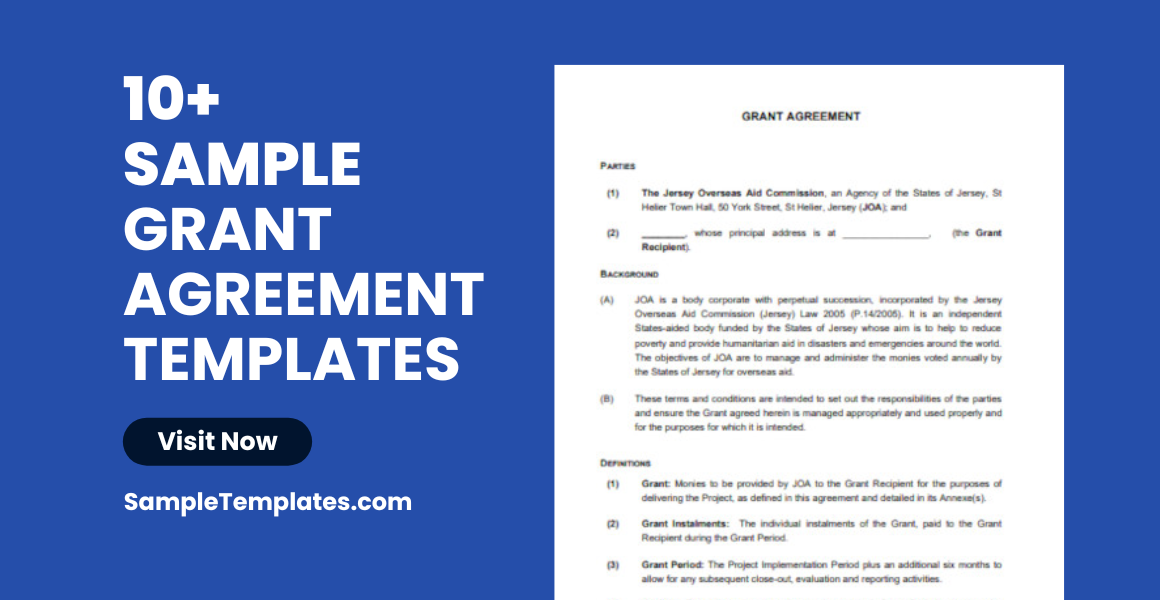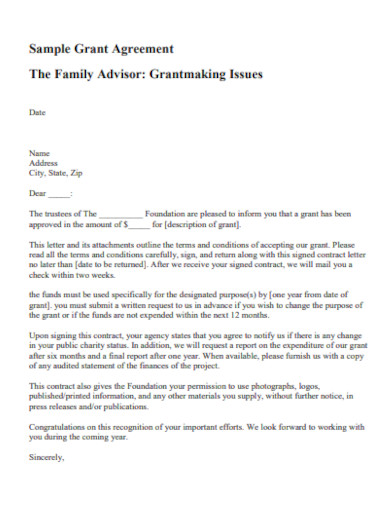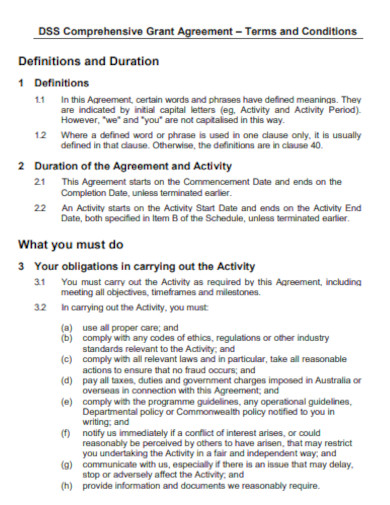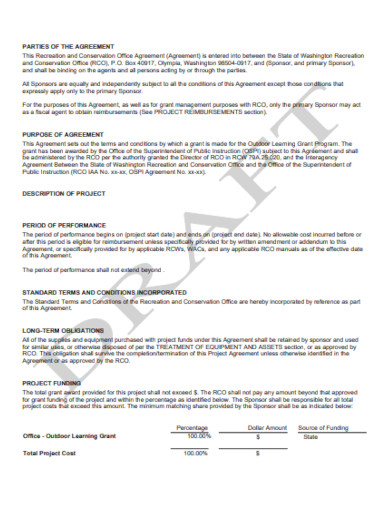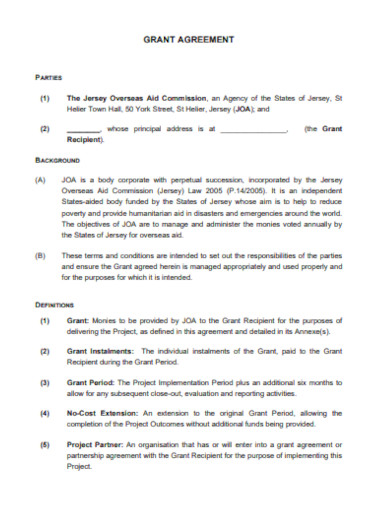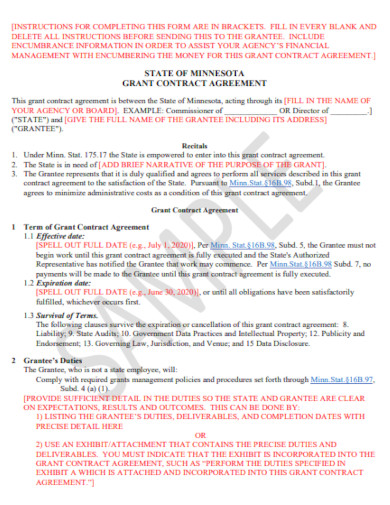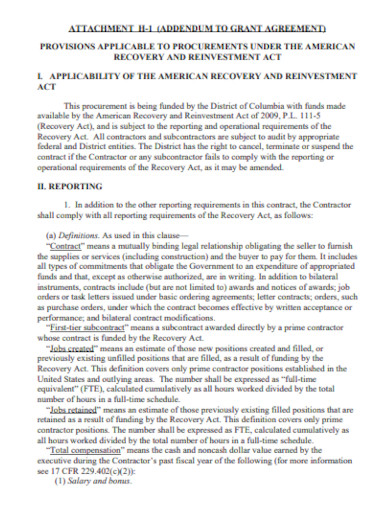10+ Grant Agreement Samples
1. Sample Stock Grant Agreement Template
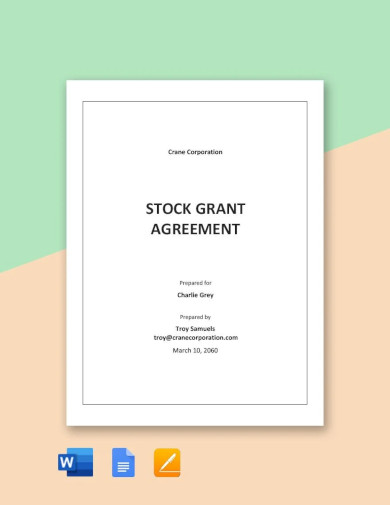
2. Sample Research Grant Agreement Template
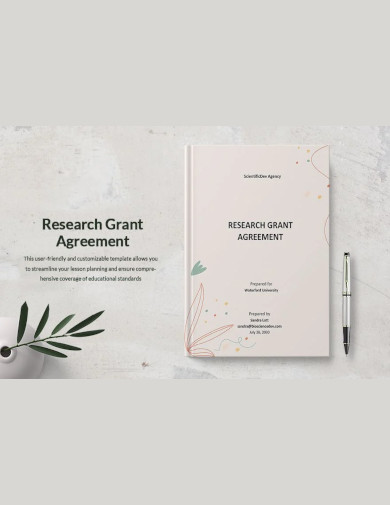
3. Sample Grant Funding Agreement Template
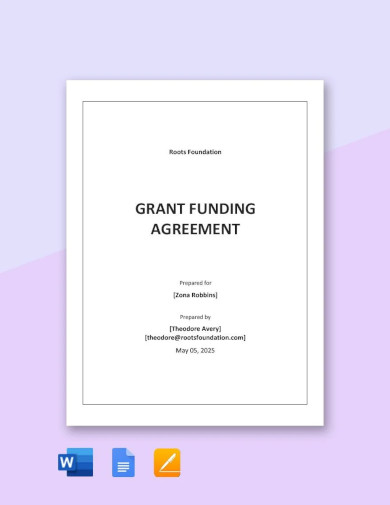
4. Sample Education Grant Agreement Template
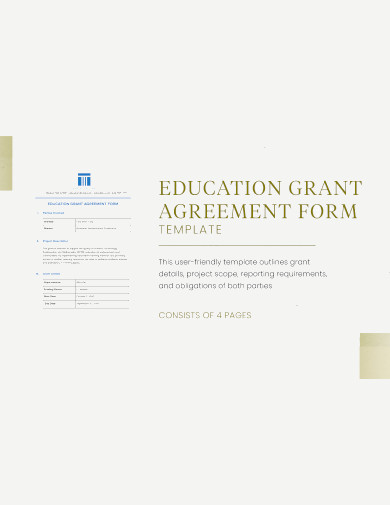
5. Sample Equity Grant Agreement Template
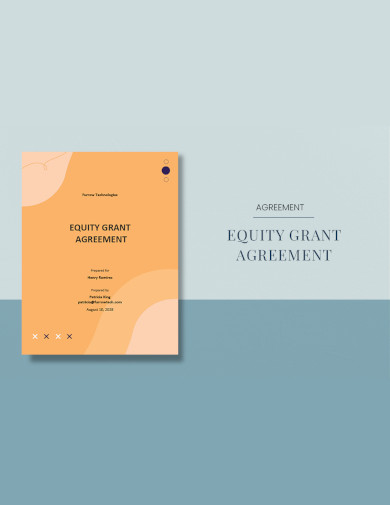
What is a Grant Agreement?
A grant agreement is a formal document that outlines the terms and conditions under which funding is provided. It serves as a legally binding contract between the grantor, often a government department, foundation, or trust, and the grantee, which could be a non-profit organization, a research institution, or sometimes an individual. The agreement details the project or activities that the funding will support, along with the obligations and expectations of both parties.
Understanding the Structure of a Grant Agreement
The structure of a grant agreement can vary depending on the grantor’s requirements and the nature of the project. However, most agreements will include several key components:
Purpose and Scope of the Grant
This section defines the sample objectives and the breadth of the project. It ensures that both parties have a clear understanding of the intended outcomes and the activities that the grant will support.
Financial Provisions
Here, the specifics of the funding are laid out, including the total grant amount, payment schedules, and any financial reporting requirements. It may also cover allowable expenses and guidelines for budget adjustments.
Duration of the Agreement
This part specifies the time frame of the project, including the start and end dates. It may also outline conditions under which the agreement can be extended.
Reporting and Monitoring
To ensure accountability, the grant agreement will set forth the reporting requirements. These can include financial reports, progress updates, and final reports that the grantee must submit to the grantor.
Conditions and Restrictions
Grant agreements often come with stipulations that dictate how the funds can be used. Restrictions may prevent the use of funds for certain activities, and conditions may be placed on the grantee, such as maintaining a non-discrimination policy.
Amendments and Modifications
This section outlines the process for any changes to the agreement. It typically requires mutual consent from both parties for any amendments to be valid.
Termination Clauses
The agreement will detail the circumstances under which either party can terminate the grant. This includes the process for termination and any responsibilities upon termination, such as the return of unspent funds.
Legal Obligations and Rights
The legal section covers the governing law of the agreement, confidentiality clauses, intellectual property rights, and liability issues. It ensures that both parties are aware of their legal commitments.
Examples of Grant Agreements in Action
To illustrate how grant agreements function in the real world, consider the following scenarios:
Non-Profit Organizations
A non-profit aiming to improve literacy rates among children may receive a grant from a foundation. The grant agreement would detail the specific sample programs to be funded, such as after-school reading clubs, and the expected outcomes, like the number of children served.
Research Grants
A university researcher might be awarded a grant to study environmental impacts on bee populations. The grant agreement would outline the research methodology, funding for lab equipment, and publication of findings.
Community Projects
A community group could be granted funds to revitalize a local park. The agreement would specify the renovation plans, community engagement efforts, and maintenance commitments.
Who Signs the Grant Agreement?
The individuals authorized to sign the grant agreement will vary depending on the organizations involved. Typically, signatures are required from:
- The Grantor: A representative with the authority to commit funds on behalf of the organization, such as a director, grants officer, or CEO.
- The Grantee: An authorized official of the recipient organization, often an executive director, project manager, or board chair.
The Process of Signing
The process of signing a grant agreement can be as follows:
- Final Review: Both parties should perform a final review of the entire agreement format to ensure accuracy and completeness.
- Clarification: Any questions or concerns should be addressed before signing. If changes are needed, they should be made in writing and initialed by both parties.
- Execution of the Agreement: The agreement is executed when both parties sign it. The date of the signatures should be recorded, as it often marks the commencement of the agreement’s terms.
- Witnesses and Notarization: Depending on the legal requirements, signatures may need to be witnessed or notarized to enhance the authenticity of the document.
- Distribution of Copies: Both parties should receive a copy of the signed agreement for their records. This ensures that both have access to the terms and conditions for future reference. You can also see more templates like Financial Agreement Samples.
After the Signature
Once the grant agreement is signed, the grantee is typically able to begin the work outlined in the agreement. The signature triggers the start of the funding period, reporting schedules, and any other time-sensitive obligations.
Legal Implications of the Signature
The act of signing the grant agreement has significant legal implications. It indicates that both parties agree to the terms and are willing to fulfill their respective roles. Failure to adhere to the agreement can result in legal consequences, including the termination of the grant, repayment of funds, or other remedies as outlined in the termination clauses. You can also see more templates like Business Agreement samples.
6. Sample Grant Agreement Template
7. Sample Comprehensive Grant Agreement Template
8. Sample Draft Grant Agreement Template
9. Sample Fillable Grant Agreement Template
10. Sample Grant Contract Agreement Template
11. Sample Addendum to Grant Agreement Template
How do you Create Grant Agreement?
Creating a grant agreement involves several steps to ensure that the document is comprehensive, clear, and legally binding. You can also see more templates like Work Agreement Samples. Here’s a simplified process:
1. Define the Project and Scope
Clearly outline the project for which the grant is being provided, including objectives, expected outcomes, and activities.
2. Determine the Grant Terms
Decide on the grant amount, payment schedule, and conditions for use of funds.
3. Establish Reporting Requirements
Set up timelines and formats for financial and progress reporting.
4. Specify Duration and Termination Conditions
Include the start and end dates of the project and terms under which the agreement can be terminated.
5. Detail Legal and Financial Obligations
Outline the legal responsibilities, confidentiality agreements, intellectual property rights, and financial accountability measures.
6. Review Compliance with Laws
Ensure that the agreement complies with all relevant laws and regulations.
7. Draft the Agreement
Write the initial draft of the grant agreement, incorporating all the above details.
8. Review and Revise
Have the draft reviewed by legal counsel and revise as necessary.
9. Obtain Approvals
Get the necessary internal approvals from the grantor’s side before sending it to the grantee.
10. Negotiate with the Grantee
Present the draft to the grantee for review, discussion, and negotiation.
11. Finalize the Agreement
Make any agreed-upon changes and finalize the document.
12. Signatures
Have the grant agreement signed by authorized representatives from both the grantor and grantee organizations.
13. Distribute Copies
Ensure both parties receive a copy of the signed agreement for their records.
14. Monitor and Amend as Necessary
As the project progresses, monitor adherence to the agreement and make amendments if both parties agree to changes.
Can a Grant Agreement be Modified?
Yes, grant agreements can usually be modified, but any changes must be agreed upon in writing by both the grantor and the grantee.
Why are Grant Agreements Important?
Grant agreements are important because they clearly define the terms, conditions, and expectations between the funder and the recipient, ensuring that the grant is used as intended and both parties’ interests are protected. They provide a legal framework that outlines the purpose of the grant, how the funds should be used, reporting requirements, and what happens if the terms are not followed. This helps to prevent misunderstandings and ensures accountability and transparency throughout the funding period.
What is Model Grant Agreement?
A model grant agreement is a standard template provided by a grantor that outlines the general terms and conditions of a grant. It serves as a starting point for negotiations and is customized for specific grant programs or projects. This template ensures consistency, clarity, and legal compliance across multiple grants issued by an organization.
In conclusion, grant agreements are essential tools for ensuring that grant funds are used effectively and for the purposes intended. They protect the interests of both the grantor and the grantee and provide a clear framework for the successful completion of the funded project. By adhering to the terms of the agreement, grantees can foster trust with funders, which can lead to ongoing support and future funding opportunities. You can also see more templates like Equity Funding Agreement Samples.
Related Posts
FREE 10+ Mentoring Agreement Samples In MS Word | Apple Pages | PDF
FREE 10+ Partner Agreement Samples In MS Word | Google Docs | Apple Pages | PDF
FREE 10+ Individual Agreement Samples In MS Word | Google Docs | Apple Pages | PDF
FREE 10+ Strategic Agreement Samples In MS Word | Google Docs | Apple Pages | PDF
FREE 10+ Equity Agreement Samples In MS Word | Google Docs | Apple Pages | PDF
FREE 10+ Producer Agreement Samples in MS Word | Apple Pages | PDF
FREE 8+ Meeting Agreement Samples in MS Word | Google Docs | Apple Pages | PDF
FREE 10+ Community Agreement Samples In MS Word | Google Docs | PDF
FREE 8+ Real Estate Option Agreement Samples in MS Word | PDF
FREE 10+ Call Option Agreement Samples In MS Word | PDF
FREE 10+ Advertising Agreement Samples In MS Word | Google Docs | Apple Pages | PDF
FREE 10+ Car Agreement Samples In MS Word | Google Docs | Apple Pages | PDF
FREE 10+ Horse Agreement Samples In MS Word | Apple Pages | PDF
FREE 10+ Option Agreement Samples In MS Word | Google Docs | Apple Pages | PDF
FREE 9+ Project Management Agreement Samples in DOC | PDF
